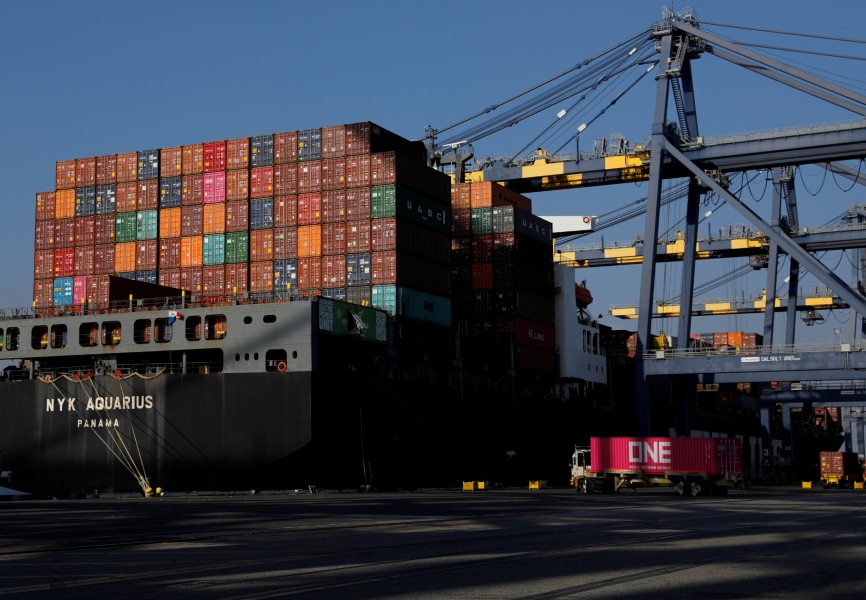As the economic pain caused by the
coronavirus pandemic intensifies, US authorities are scrambling to find ways to alleviate it.
President Donald Trump last month signed off on a
record $2 trillion stimulus package and lawmakers have already started work on another. One step that is not likely to be contemplated, however, is a substantial reduction in tariffs, despite their cost for US consumers and businesses. As Eurasia Group expert
Todd Mariano explains, the tariffs Trump has put in place are too important to his “America First” agenda to roll back.
Does that mean no relief at all, even to address shortages of medical supplies?
No. The US's worst health crisis in a century has exposed a lack of crucial supplies and a reliance on imports from China at a time that the two countries are locked in a
grinding trade war, forcing some flexibility from the Trump administration. Its trade representative has announced that medical products such as face masks, examination gloves, and sanitizing wipes would be exempted from so-called Section 301 tariffs on China and invited comment on further exclusions through 23 June. In addition, the Small Business Administration is also helping small- and medium-size enterprises to navigate trade barriers.
So is further relief possible?
Despite pressure from US businesses to obtain assistance and reports that the administration was considering a three-month suspension of most-favored-nation tariffs on items such as trucks and apparel, officials have backed away from this idea. These standard levies applied to goods from WTO member nations are low to begin with and do not carry much political significance for Trump, so the administration's reluctance to follow through with this temporary measure is a strong signal that relief will only be contemplated in cases of immediate medical need. Other trade policies are off limits ahead of
Election Day in November. This is especially so for the high Section 301 tariffs imposed on China and the Section 232 tariffs imposed on steel and aluminum. Trump is unwilling to abandon what he views as key victories of policies he believes will protect US industries and jobs.
Will the pandemic reinforce the America First agenda and US decoupling from global supply chains?
China's role in the pandemic is bolstering hawks in Washington on issues of both trade and national security. Members of Congress from both parties are working on “Buy American” legislation to replenish US stockpiles and strengthen preparedness for the next pandemic by reducing reliance on Chinese manufacturing. China's actions related to the pandemic—especially early efforts to conceal information and its perceived attempts to
use the crisis to expand its global influence—reinforce suspicions of Chinese national interests and objectives. The virus's origins in China will give Trump convenient talking points for the campaign trail—he had
initially referred to it as the “Chinese virus”—on one of his core issues. And while the president has recently been less openly critical of China, the pandemic probably strengthens the hands of economic nationalists who will continue to push for decoupling.
And why has the administration been placing restrictions on exports?
In response to ongoing shortages of needed medical supplies, Trump last week invoked the Korean War-era Defense Production Act to restrict the export of personal protective equipment such as N95 respirator masks produced by US manufacturer 3M. The move caused an international outcry, especially from Canada. It appears that the US trade representative is now working on an exemption for Canada and has allowed 3M to continue sending supplies to Latin America, but the issue is likely to flare again if the coronavirus continues to rage. Though export restrictions are perhaps a logical extension to Trump's America First approach, the US is not alone in applying them during the current crisis. China limited exports of protective equipment for a time earlier this year, the EU has introduced new rules on selling medical products outside of the bloc, and India has clashed with the US over the former's move to restrict shipments of hydroxychloroquine, a drug some believe could be used to treat Covid-19. The pandemic seems to be reinforcing protectionist instincts around the world.
Learn more:

 Shipping containers at the Port of Los Angeles. REUTERS.
Shipping containers at the Port of Los Angeles. REUTERS.
